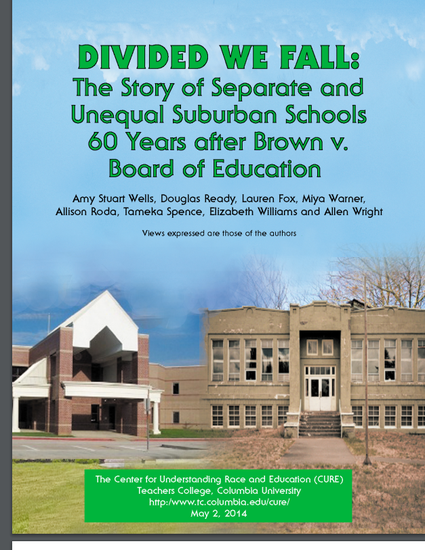
This report is a clarion call for those paying attention to the changing racial and ethnic demographics of this country and its suburbs in particular. It is the in-depth story of one suburban county and its public schools as the demographics of who lives in the suburbs versus the cities in the 21st century is shifting quickly, as the affluent and the poor, the black and the white are trading places across urban-suburban boundary lines. The same story could be told about hundreds of suburban counties across the country that are facing similar pressures and approaching similar breaking points.
In the statistical data we analyzed and in the voices of the 800 people we interviewed and surveyed in Nassau County, Long Island - the home of Levittown, the first post-WWII archetypal suburb -- there is mounting anxiety about the future of American suburbs and their public schools. We found much frustration about how the economy, housing market, lack of infrastructure and public policies negatively affect these communities. In this report, we convert this angst into a reality check for anyone who may think that racially and ethnically diverse suburbs are easily accomplished or that they do not face serious obstacles.
These obstacles include racially and ethnically segregated housing patterns amid fragmented and divided municipalities and school districts and the "brain drain" of more affluent and educated residents who grew up in the suburbs but now prefer city life. Meanwhile, these suburbs are "tubs on their own bottoms," heavily reliant on "local" sources of funding, namely property taxes, to pay for public schools and municipal services. This means that public school resources and reputations are spread unevenly across separate and unequal suburban school districts.
Available at: http://works.bepress.com/allison-roda/1/
